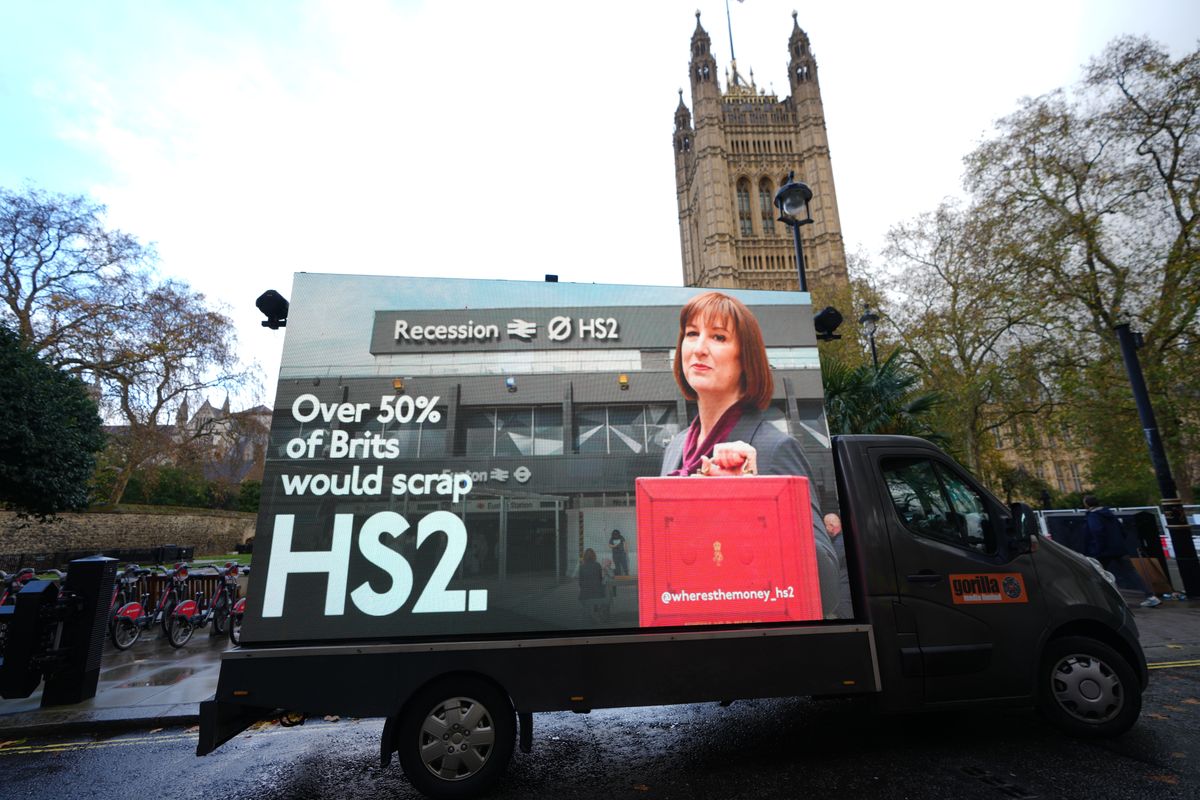LONDON (AP) — After being elected in a landslide last year, Britain’s Labour Party government delivered a budget it billed as a one-off dose of tax hikes to fix the public finances, get debt down, ease the cost of living and spur economic growth.
A year on, inflation remains stubbornly high, government borrowing is up and the economy is turgid. The annual budget, due on Wednesday, is expected to bring more tax hikes in pursuit of the same elusive economic boom.
Rain Newton-Smith, head of business group the Confederation of British Industry, said Monday that “it feels less like we’re on the move, and more like we’re stuck in ‘Groundhog Day.’”
It’s not just businesses who are concerned. Alarmed by the government’s consistently dire poll ratings, some Labour lawmakers are mulling the once-unthinkable idea of ousting Prime Minister Keir Starmer, who led them to victory less than 18 months ago.
Luke Tryl, director of pollster More in Common, said voters “don’t understand why there has not been positive change.
“This could be a last-chance saloon moment for the government.”
Not much room for maneuver
The government says Treasury chief Rachel Reeves will make “tough but right decisions” in her budget to ease the cost of living, safeguard public services and keep debt under control.
She has limited room for maneuver. Britain’s economy, the world’s sixth-largest, has underperformed its long-run average since the global financial crisis of 2008-2009, and the center-left Labour Party government elected in July 2024 has struggled to deliver promised economic growth.
Like other Western economies, Britain’s public finances have been squeezed by the costs of the COVID-19 pandemic, the Russia-Ukraine war and U.S. President Donald Trump’s global tariffs. The U.K. bears the extra burden of Brexit, which has knocked billions off the economy since the country left the European Union in 2020.
The government currently spends more than 100 billion pounds ($130 billion) a year servicing the U.K.’s national debt, which stands at around 95% of annual national income.
Adding to pressure is the fact that Labour governments historically have had to work harder than Conservative administrations to convince businesses and the financial markets that they are economically sound.
Reeves is mindful of how financial markets can react when the government’s numbers don’t add up. The short-lived premiership of Liz Truss ended in October 2022 after her package of unfunded tax cuts roiled financial markets, drove down the value of the pound and sent borrowing costs soaring.
Luke Hickmore, an investment director at Aberdeen Investments, said the bond market is the “ultimate reality check” for budget policy.
“If investors lose faith, the cost of borrowing rises sharply, and political leaders have little choice but to change course,” he said.
Mixed pre-budget signals
The government has ruled out public spending cuts of the kind seen during 14 years of Conservative government, and its attempts to cut Britain’s huge welfare bill have been stymied by Labour lawmakers.
That leaves tax increases as the government’s main revenue-raising option.
“We’re very much not in the position that Rachel Reeves hoped to be in,” said Jill Rutter, a senior fellow at the Institute for Government think tank.
Instead of an economy that has “sparked into life,” enabling higher spending and lower taxes, Rutter said Reeves must decide whether “to fill a big fiscal black hole with tax increases or spending cuts.”
The budget comes after weeks of messy mixed messaging that saw Reeves signal she would raise income taxes – breaking a key election promise – before hastily reversing course.
In a speech on Nov. 4, Reeves laid the groundwork for income tax hikes by arguing that the economy is sicker and the global outlook worse than the government knew when it took office.
After an outcry among Labour lawmakers, and a better-than-expected update on the public finances, the government signaled it preferred a smorgasbord of smaller revenue-raising measures such as a “mansion tax” on expensive homes and a pay-per-mile tax for electric vehicle drivers.
The government will try to ease the sting with sweeteners including an above-inflation boost to pension payments for millions of retirees and a freeze on train fares.
Critics say more taxes on employees and businesses, following tax hikes on businesses in last year’s budget, will push the economy further into a low-growth doom loop.
Patrick Diamond, professor in public policy at Queen Mary University of London, said satisfying both markets and voters is difficult.
“You can give markets confidence, but that probably means raising taxes, which is very unpopular with voters,” he said. “On the other hand, you can give voters confidence by trying to minimize the impact of tax rises, but that makes markets nervous because they feel that the government doesn’t have a clear fiscal plan.”
High stakes for Reeves and Starmer
The budget comes as Starmer is facing mounting concern from Labour lawmakers over his dire poll ratings. Opinion polls consistently put Labour well behind the hard-right Reform UK party led by Nigel Farage.
The prime minister’s office sparked a flurry of speculation earlier this month by preemptively telling news outlets that Starmer would fight any challenge to his leadership. What looked like an attempt to strengthen Starmer’s authority backfired. The reports set off jitters verging on panic among Labour lawmakers, who fear the party is heading for a big defeat at the next election.
That election does not have to be held until 2029, and the government continues to hope that its economic measures will spur higher growth and ease financial pressures.
But analysts say a misfiring budget could be another nail in the coffin of Starmer’s government.
“Both Starmer and Reeves are really unpopular,” Rutter said. “They may be hanging on for now, but I don’t think people will be giving you great odds that they’ll necessarily last the course of the Parliament,” which runs until the next election.
By JILL LAWLESS and PAN PYLAS
Associated Press



